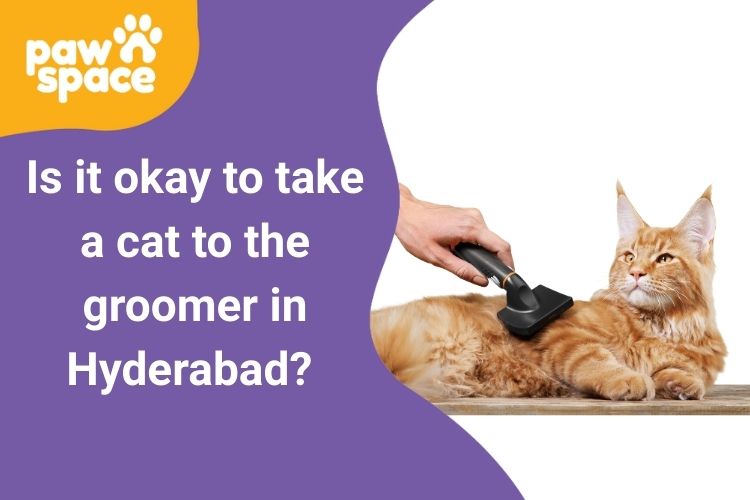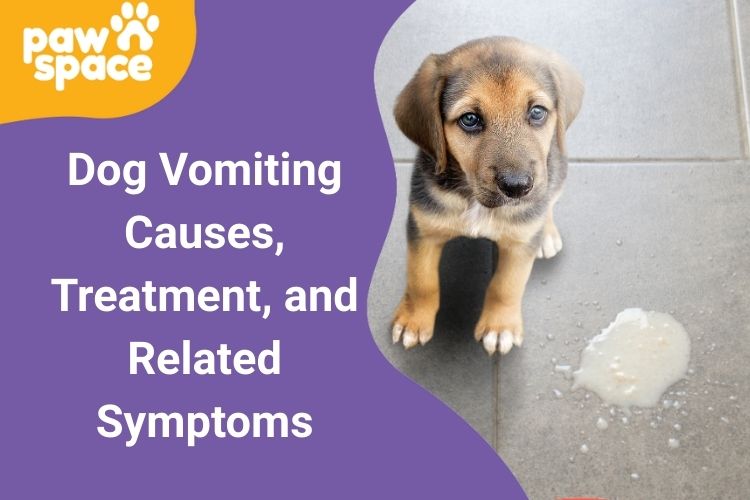Why Is My Dog Howling? is just one part of their vast communication repertoire, which includes barking, whining, and growling. Some signals are easy to interpret—like an excited bark when you grab the leash—but howling often leaves owners puzzled. Is it a sign of distress, a call for attention, or simply your dog channeling its inner wolf?
Some dog behaviors are easy to interpret, like the pleading look your pup sends your way when you’re eating a juicy hamburger. (Translation: “Gimme a bite.”) But the long, doleful sound your dog makes on occasion? That’s downright perplexing. So why do dogs howl, exactly?

Let’s demystify the howling dog, and examine the possible causes and what they imply in various circumstances. Surprise, surprise: It’s not always a cause for concern!
Table of Contents
Toggle- 1. The Ancestral Connection: It’s in Their DNA
- 2. Reacting to Sounds: The Siren Song
- 3. Attention-Getting: A Sound of Distress
- 4. Loneliness or Separation Anxiety: A Cry from the Heart
- 5. Medical Issues: A Delicate Hint at Pain
- 6. Joy and Excitement: A Howl of Happiness
- 7. Breed Tendencies: Born to Howl
- 8. The “Pack Mentality” Trigger
- Do You Need to Worry About Howling?
- A Window Into Your Dog’s World
- Pawspace: The safe space for your pets
- Why Choose Pawspace?
- FAQs
- 1. Why does my dog howling at sirens or squeaky noises?
- 2. Is howling always a sign of distress?
- 3. Do all breeds howl equally?
- 4. Can separation anxiety be demonstrated through howling?
- 5. How can I reduce excessive howling?
1. The Ancestral Connection: It’s in Their DNA
The howl is a natural behaviour that dogs have inherited from their wild ancestors, the wolves. Being a wild species, howling had a number of important functions:
- Communication: Howling can call a wolf’s pack, repel others of its coming, or promote to find other wolves at a distance.
- Territory Marking: A warning was howled to keep other animals away from the pack territory.
- Bond Strengthening: Singing with their pack served to strengthen a sense of group unity.
While your domesticated pup might not need to call the pack home or defend a territory, these instincts still linger. Sometimes, a dog’s howl is just their way of saying, “Hey, I’m here! Let’s connect.”
2. Reacting to Sounds: The Siren Song
Does your dog ever howl when it hears the siren, train whistle, or the sound of a musical instrument? Dogs have very sensitive hearing and can detect high pitches that even human beings may not hear.
To other canines, reacting back to such sounds naturally is a form of wolf-to-wolf communication using the howl. To them, a siren or thin whistling sound way in the distance might sound like what they’ve heard, that some other individual’s “dog” is howling far away, and they’re just answering back.
Pro Tip: If your dog is over HOWLING at particular sounds, then attempt desensitization with gradual exposure in a controlled environment with rewards.
3. Attention-Getting: A Sound of Distress
Dogs are pack animals, and some of them are quite loud when they need you to hear them out. Howling may be their manner of saying, “Listen! I need something!” Be it food, a walk, or simply your presence, your pet may employ howling as a method to attract your attention when all other options (like barking or nudging) have been exhausted.
If your dog keeps howling so that they will get attention, then it is definitely worth keeping a close watch on the situation. Are they howling because they are lonely, hungry, or neglected? Fulfilling their needs and giving them adequate regular mental and physical stimulation is a great way of diminishing attention-seeking behaviour in the long term.
4. Loneliness or Separation Anxiety: A Cry from the Heart
Howling usually evokes the sentiments of loneliness or sadness. Canines are social pack animals by nature, and long isolation might leave them isolated. Separation anxiety, particularly, is among the common causes of howling in dogs when their favorite human is not visible.
In case your dog starts howling during your absence, consider the following steps:
- Gradual Desensitisation: Acclimatise your pet to being alone by departing for short periods and gradually increasing the duration.
- Interactive Toys: Mentally challenge your dog using puzzle toys or treat-dispensing gadgets when not home.
- Professional Training: For extreme instances of separation anxiety, professional dog training or behaviourist assistance might be necessary.
5. Medical Issues: A Delicate Hint at Pain
Other times, your dog is telling you they are in discomfort or in pain. Your dog cannot literally say to you that something hurts, so it will demonstrate through vocalisation and body language that something hurts.
If your dog’s howling is new, ongoing, or is accompanied by other abnormal behaviours (e.g., limping, vomiting, or lethargy), you should see a vet. He or she can advise you if there is some health issue that needs to be addressed.
6. Joy and Excitement: A Howl of Happiness
Not all howling is distress—some of it is just pure joy! Some dogs howl as an expression of excitement, such as when you’re coming home from the door after being out all day or when they’re riding in the car. It’s their bouncing up and down excitedly and screaming, “Yay!”
This kind of howling is normally accompanied by wagging tails, playfulness, and plenty of positive energy. Howling is just their means of expressing their excitement and joy in these situations.
7. Breed Tendencies: Born to Howl
There are certain breeds of dogs that are bred to howl more than others. For instance:
- Hounds: Beagles and Basset Hounds will howl due to their breed background as hunting animals, and they vocalize to alert them to game.
- Northern Breeds: Huskies and Malamutes are well known for their howling trait and howl rather than bark.
- Wolf-Like Breeds: The more wolf-like in their genetics, i.e., Alaskan Shepherds, are likely to be more likely to howl.
If your pet is a hound-bred dog, then this behaviour is most likely a part of their personality.
8. The “Pack Mentality” Trigger
Dogs are highly social creatures, and howling can be contagious. If one dog in the neighbourhood starts howling, your dog might join in out of solidarity. It’s their way of saying, “Hey, I’m part of the pack too!”
This pack behaviour can also be induced by group situations, like dog parks or day care, where a howl from one creature could cause a chorus of howling.
Do You Need to Worry About Howling?
Thinly repeated howling is completely normal and likely nothing to concern yourself with. As with all things, though, recording frequency, conditions, and activity being done simultaneously is worth it. Prolonged or regular howling may be signaling something else occurring, like anxiety, illness, discomfort, or unsatisfied needs.
When it is uncertain whether the howling of your dog is healthy or unhealthy, it is best to go visit a vet or seasoned canine behaviourist to help clear things out and shed some light.
A Window Into Your Dog’s World
Howling’s more than a sound; it’s a glimpse into your dog’s inner life. They may be tapping into wolf heritage, responding to a sound, asking for attention, or whatever, but whatever the reason, howling’s a lovely (and sometimes infuriating) canine art of communication.
As a dog owner, knowing your dog’s “why” for howling not only strengthens the bond but determines their health and happiness as well. The next time your furry companion snaps their head back and emits one of those big, mournful howls, bear in mind—it’s their language, and there is much to say!
Pawspace: The safe space for your pets
We at Pawspace are dedicated to providing top-notch care and companionship for your
beloved pets. Honoured to be India’s biggest pet-centred community! Created and curated by pet parents.
Our services include pet grooming, pet boarding, pet sitting, doorstep dog training, dog walking, pet taxi/cab, pet relocation, pet funeral, cat grooming, etc.
Why Choose Pawspace?
- Available on demand for pet parents everywhere
- Verified caregivers with a 5-point checklist & rigorous background checks
- Be at peace by receiving regular updates through chats, photos and videos
FAQs
1. Why does my dog howling at sirens or squeaky noises?
Dogs howl at sirens because it sounds like another howl, and it activates their instinct to respond as part of their ancestral pack behaviour.
2. Is howling always a sign of distress?
No. Howling can be a range of things, including excitement, attention, or communication, but in some circumstances, it can be anxiety or pain.
3. Do all breeds howl equally?
Yes, some breeds like Huskies, Beagles, and Malamutes are more vocal and prone to howling due to their lineage and inherited tendencies.
4. Can separation anxiety be demonstrated through howling?
Yes, separation-anxious dogs will howl when left behind, exhibiting loneliness or upset. This is usually accompanied by pacing or destructiveness.
5. How can I reduce excessive howling?
Identify the cause and remove it through training, desensitisation, or creating a soothing environment.

















